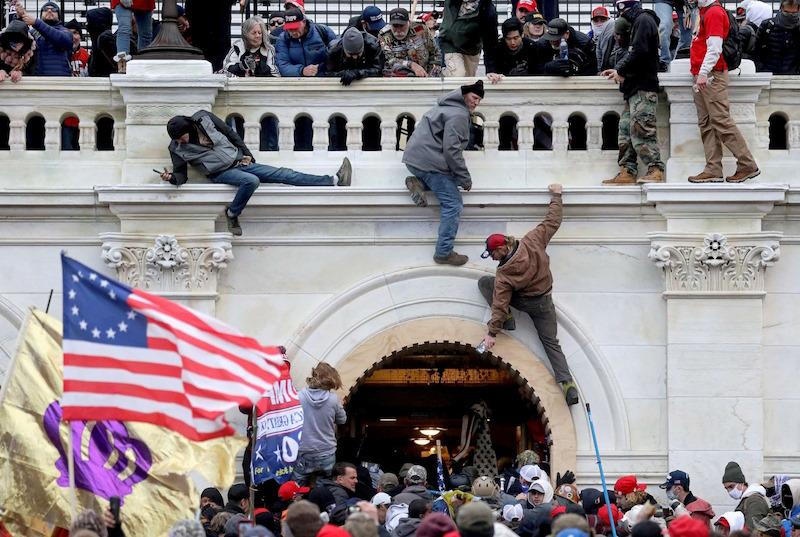Some thoughts on this day, the four year “anniversary” of the (alleged) attempt by a so-called president to incite an insurrection.
Fourteenth Amendment Equal Protection and Other Rights
“Section 3 Disqualification from Holding Office:
No person shall be a Senator or Representative in Congress, or elector of President and Vice-President, or hold any office, civil or military, under the United States, or under any State, who, having previously taken an oath, as a member of Congress, or as an officer of the United States, or as a member of any State legislature, or as an executive or judicial officer of any State, to support the Constitution of the United States, shall have engaged in insurrection or rebellion against the same, or given aid or comfort to the enemies thereof. But Congress may by a vote of two-thirds of each House, remove such disability.”
Ratified after the Civil War, Section 3 of the 14th Amendment, sometimes referred to as the “Insurrection Clause” or “Disqualification Clause”, disqualifies any person from being a Senator, Representative, or elector of the President or Vice-President, or from holding any federal or state military or civil office, if that person has: (1) sworn to support the Constitution as a Member of Congress, officer of the United States, member of a State legislature, or state executive or judicial officer; and (2) then engages in insurrection or rebellion against the Constitution or gives aid or comfort to its enemies. Section 3 further provides that Congress may remove the bar from an otherwise disqualifed person by a two-thirds vote in each House.
Section 3 has rarely been used. In 1872, Congress removed the disqualification bar from all persons except Senators and Representatives of the 36th and 37th Congresses, officers in the judicial, military and naval services, heads of departments and foreign ministers of the US. In 1898, Congress enacted greater legislation removing the remaining Section 3 disability brought on during the Civil War. Act of June 6, 1898, ch. 389, 30 Stat. 432 (the disability imposed by section 3 . . . incurred heretofore, is hereby removed.). During the Reconstruction Era, a lower court held Congress first had to adopt legislation providing for removal from office in order to give effect to Section 3 and, without such legislation, persons in office before the 14th Amendment was put into effect, continued to lawfully exercise their positions.
On March 4, 2024, in its only decision specifically interpreting Section 3, the US Supreme Court ruled unanimously in Trump v. Anderson that states can’t enforce Section 3 against federal officeholders or candidates. With that ruling, the Supreme Court reversed the decision of the Colorado Supreme Court holding Trump to be ineligible for the office of President under Section 3 on the grounds that he engaged in insurrection, therefore, couldn’t be listed on the Colorado presidential primary ballot.
And here we are . . . again . . .
“Do not obey in advance.”
Timothy Snyder, historian, author

